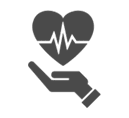San Diego Coronavirus Lawyer
- 550+ Google 5-star reviews
- $1Billion won over 15 years
- Won’t settle for low offers, not afraid to fight for max value
Get a Free Case Evaluation
No fees until we win!
All San Diego Case Types

Personal Injury

Brain Injury

Car Accident

Slip & Fall

Truck Accident

Wrongful Death
San Diego Coronavirus Lawyer
SAN DIEGO’S TOP TRIAL AND ACCIDENT LAWYERS
The United States of America, with a population of 327 million people, has not seen a grand scale halting of society like we see today with the Coronavirus or “COVID-19” pandemic. Information and news stories are constantly developing as governments, businesses, and people are forced to combat what has become termed a “war” against “an invisible enemy.” While so much is uncertain and unknown, the world’s leading experts, medical professionals, and scientists make clear: everyone needs to take the necessary precautions to fight the spread of the Coronavirus, or face the dire consequences of mass infection, overcrowding at medical facilities, and high rates of grave illness and death. The Coronavirus pandemic will affect all of our lives, including our access to health services, employment, relationships, and wellbeing.
Fortunately, our legal system is built to withstand all developments in society, including the Coronavirus. The law grants every person legal rights and lawyers are here to enforce those legal protections. The new Coronavirus or COVID-19 pandemic may affect your legal rights in many ways that you did not think about before. Gomez Trial Attorneys is a team of personal injury lawyers that has been fighting for the rights of harmed clients successfully over the past two decades. Our law firm is dedicated to delivering cutting edge representation for our clients. Below is an overview of issues relating to how the Coronavirus may affect your legal rights, and how the Coronavirus lawyers at Gomez Trial Attorneys is ready and able to represent you for any type of harm or loss that you suffer. If you or a close one has been harmed, to schedule an initial consultation as soon as possible to discuss your case and how the Gomez Trial Attorneys can get you the results you need.
COVID 19 PANDEMIC
The Coronavirus pandemic is now a major global health threat. The spread of COVID-19 has been rapid, with most of the world’s countries now reporting at least one case. Several countries, including China, South Korea, Italy, Spain, France, and the U.K. have ordered complete lockdowns where citizens are not allowed to go outside unless they are going out to get basic necessities. States across America are following suit, including California, New York, and Illinois. The world experts consider two fundamental strategies to combat Coronavirus: Suppression and Mitigation.- Suppression: The aim of suppression is to reduce the number of transmissions and reproductions of secondary cases. The key to such reduction is to eliminate human-to-human transmission. As such, many states including California, New York, New Jersey, Ohio, and Illinois have instituted laws that require social distancing—forcing people to only go outside for the basic necessities like groceries, gasoline, medical treatment, or other essential outdoor interactions.
- Mitigation: The goal of mitigation is to use medications, including vaccines and drugs, not to interrupt transmission completely, but to reduce the health impact of the COVID-19 pandemic. In the “Swine Flu” pandemic, early supplies of vaccine were targeted at individuals with pre-existing medical conditions that put them more at risk. The hope there is that immunity will build up through the epidemic, leading to an eventual decline in the general population.
WHAT ARE THE SYMPTOMS OF THE CORONAVIRUS?
Coronaviruses are zoonotic. Zoonotic viruses are transmitted between animals and humans. According to the World Health Organization, the common symptoms of the Coronavirus—COVID-19 are:- Respiratory symptoms, including trouble breathing, shortness of breath, and breathing difficulties
- Fever
- Cough
- Body ache.
WHO IS AT RISK FOR THE CORONAVIRUS?
Certain people are susceptible to suffering severe harm and potential death from the coronavirus. The first category is the elderly. As we age, our body becomes older and our ability to fight disease and viruses diminishes. The elderly’s immunity is not as strong as a young person’s immunity. So, particular protections for the elderly are essential. Nursing homes must protect its residents by disallowing visitors and ensuring that its staff members are not exhibiting signs or symptoms of the coronavirus. Those in leadership positions must take their staff member’s complaint of illness seriously, and not allow an ill person to come into contact with a residency for the elderly. Additionally, those with preexisting conditions involving a weakened immunity are highly susceptible to the coronavirus. If one does not have a strong immunity, or has underlying medical conditions that have already weakened their immunity system, they may not have the power and strength to fight this highly aggressive coronavirus—COVID-19.CORONAVIRUS—SOCIAL DISTANCING AND SELF QUARANTINE
If one searches on the internet about the new coronavirus and COVID-19, the terms of “social distancing,” “flattening the curve,” and “self-quarantine” will be key hits. These terms are being used on a daily basis by news commentators, journalists, doctors, nurses, lawyers, athletes, and social media enthusiasts. So, what do these terms mean, and how do they affect us each days?SOCIAL DISTANCING
Social distancing is the act of creating actual physical space between people to avoid spreading illness. The trouble with the Coronavirus is that it is easily transferable from human to human. The Coronavirus may be able to survive on a person’s hands, clothing, surfaces, or pretty much any type of physical object. When a person comes into contact with that infected surface or person, the likelihood of contamination increases as that virus can enter the body. The virus can enter the body through openings, including one’s mouth, nose, or eyes. This is why constant advice to wash your hands and not touch your face are so important—if you do happen to get the physical virus on your person, hopefully you will be able to wash it off, or not place it in your mouth, nose, or eyes. The cancelling of sports events, cruises, festivals, meetings, business events, work conventions, amusement parks, gyms, movie theatres, shopping malls, and really any other type of gathering location is a clear example of social distancing. Also, preventing physical access by cancelling these gatherings, people are not physically able to come into contact with one another, and therefore will limit the amount the coronavirus is spread. State Governments and the Center for Disease Controls have enacted mandates and guidelines for gatherings. The State of California was the first government to pass a legal enactment that restricts movement of people, and includes the closure of restaurants and bars for in-dining service, the closure of schools, the closure of gatherings of more than 10 people, and other measures as well. Since California passed these restrictions, several other states have followed suit, with more expected to follow. Social distancing helps promote the safety of others. Businesses and corporations are required to consider their employees’ safety every day, and instituting policies of social distancing is vital to ensuring safety with the Coronavirus. All it takes is one person to infect many others, causing what is called a “Cluster.”SELF-QUARANTINE
People who have been exposed to the new coronavirus are at risk of coming down with the virus of COVID-19 are encouraged to practice self-quarantine. If one tests positive for coronavirus, he or she is mandated to self-quarantine for 14 days. Two weeks provides sufficient time to know whether the symptoms will escalate or whether they will be contagious to other people. Those who have been living abroad or traveling to different parts of the world are expected to quarantine upon arrival to the United States. Self-quarantine requires:-
- Using hygiene and washing hands frequently
- Not sharing any type of clothing, towels, or eating utensils
- Staying at home
- Not having visitors
- And keeping at least 6 feet distance from others in the household.
FLATTENING THE CURVE

Covid-19
CORONAVIRUS—YOUR LEGAL RIGHTS
PERSONAL INJURY FROM CORONAVIRUS HARM
The Coronavirus—COVID-19 can be extremely harmful and dangerous. Also, the Coronavirus is highly infectious and spreads rapidly from human to human. Under the law, when you suffer harm due to the carelessness or recklessness of another, you may be eligible to file a claim. Compensation for injury or illness damages may be recovered through a personal injury lawsuit. While some personal injury lawsuits deal with intentional acts, most concern acts of negligence. The elements of negligence must be proven for the injured party to have a successful recovery. Negligence is the failure to exercise reasonable care. Also, some cases may require “gross negligence.” Under the law in California, gross negligence is defined as a “an extreme departure from what a reasonably careful person would do in the same situation to prevent harm to oneself or to others.” This means there is a lack of care, or reckless misconduct where a person performs an act so unreasonable and dangerous that he or she knows it is highly probable that harm will result. All businesses and people have a legal responsibility to not cause harm to others. In the Coronavirus context, this means if somebody knows or should have known they are infected with Coronavirus, it would be irresponsible and dangerous to socialize with others because the virus is so contagious. For example, if a restaurant knew or had a reason to suspect that its delivery person had the Coronavirus, and that restaurant allowed that delivery person to continue working with the food, handling the utensils, and dropping off the food at the customer’s house, and a customer of the restaurant contracted the Coronavirus from that cook, the customer may be able to claim negligence or gross negligence against the restaurant. In addition to negligence, the injured party must show they suffered harm as a result of the negligence. This is called causation. Proving causation—that the conduct actually caused the harm will be evaluated by an attorney in every case. For a case involving Coronavirus, the question of “causation” will be very tough, as the Defendant will likely point to many other potential sources of the Coronavirus. Any attorney will need to evaluate causation very carefully.NEGLIGENCE AND GROSS NEGLIGENCE—CLUSTERS
One area of great importance in fighting the Coronavirus is to prevent “Clusters.” Clusters refers to groups of people contracting an infection, like the Coronavirus. Where many people reside together in the same space, or many people are in some type of group environment, there is higher likelihood of mass infection if one of these persons have the Coronavirus. We have seen examples of this with nursing and elderly homes. We have also seen with cruise ships, where many people are staying in the same place with close quarters and lots of contact with each other. Any business or company operating with large groups, like a residential establishment for the elderly, like a nursing home or senior citizen home, or a cruise ship, boating excursion, night club, etc. has the responsibility to make sure their staff are not at risk for spreading disease or viruses. For example, if a custodian worker is ill with the flu, that worker should be trained to advise his or her manager to report the flu symptoms, and the manager should tell that worker stay home. The same applies for the Coronavirus. If a caretaker for the elderly came down with symptoms of the Coronavirus, the management must tell this caretaker to self-isolate and stay away from the elderly. This is especially important where the threat of Coronavirus spread could affect many people and cause a “Cluster.” Proving negligence and gross negligence, where a business or company’s failure to provide proper care causes a cluster of infections, this could lead to a lawsuit—where all the victims join together to hold the wrongdoer responsible.INSURANCE BAD FAITH CLAIMS—BUSINESSES AND PEOPLE HURT BY CORONAVIRUS
Every insurance company is required by the California laws to provide “good faith and fair dealing” when evaluating claims made by business and people. Business, companies, and people pay monthly premiums to their insurance companies in order to provide help during times of trouble. In exchange for those monthly premiums, the businesses, often small businesses or people, receive a benefit of getting resources or help when things go bad. When the insurance companies deprive those businesses or people of their insurance benefits, meaning the insurance company refuses to make good on payments, you may have a claim for Insurance Bad Faith. Business interruptions are ongoing with the Coronavirus. A business that suffers a financial downturn because of the impact of the Coronavirus, may be able to describe such losses as an “interruption” of business, and their insurance policies may provide coverage for economic assistance. Although interruption policies may require physical loss or damage, no two policies are exactly alike, and having an attorney review such policies will be very important. Insurance coverage questions are likely to also arise where governments order businesses to shut down, as we have seen with restaurants, bars, clothing stores, and several other business types. Insurance companies may be responsible for handling such commercial claims of business loss, and having an attorney evaluate such claims will assist in obtaining any possible recovery.CONSUMER CLASS ACTIONS
Consumer class actions occur where a group of consumers have been the victim of misconduct by defendants. Generally, a large company has harmed a massive group of people through deceptive business practices, failure to protect consumer interests, violating the law, or for creating defective products. The named class representative will represent the interests of the other class members and bring forward a lawsuit on their behalf. As we have seen already, the Coronavirus affects people in large groups. We have all seen the multiple large-scale events that have been cancelled due to the Coronavirus, including the professional sports leagues, big concerts and festivals, business conferences and conventions, and several other type of group gatherings. With these cancellations, hundreds of thousands of people may have lost out on purchases or investments. With these mass losses, there may be a claim against those who did not have capacity to refund or provide an alternate capability to compensate for such loss. Another example is the heavy marketing occurring for Coronavirus, including advertisements for sales of medical equipment, vitamins, and other products that are alleged to prevent Coronavirus or stop the spread of Coronavirus. Such false advertising that influences people to spend money on fake products could also lead to a class action lawsuits. If you purchase a product that turned out to be false advertising due to the heightened concern and media involving the Coronavirus, you may have the opportunity for a lead case in a consumer class action and represent a large group of people who were also wronged by that fraudulent conduct.EMPLOYMENT CLASS ACTIONS
An employment class action lawsuit is similar to a consumer class action, but is a lawsuit by the class representative who has the same type of claims against an employer. For example, an employer who fails to pay overtime, fails to provide breaks, provides non-compliant wage statements, fails to reimburse employees, does not make correct payments for deliveries, or does not provide adequate working conditions for all of its employees may give rise to an employment class action. Damages for monetary compensation are demanded in the single class action rather than each individual employee bringing a separate lawsuit.
Coronavirus attorney, John Gomez
EMPLOYMENT—WRONGFUL TERMINATION
An employee who is fired in violation of an employment contract, for discriminatory reasons, for taking protected leave, for reporting an employer’s wrongdoing, or for exercising certain legal rights may have a wrongful termination claim. For instance, an employee cannot be fired on the basis of their race, gender, ethnic background, religion, age, or disability. It is also illegal to fire an employee exercised legal rights as well. Such adverse actions are considered “retaliation” and are against the law. Additionally, where an employer’s discharge of an employee violates fundamental principles of public policy, the discharged employee may maintain claim and recover damages traditionally available in a wrongful termination case. The measure of recovery by a wrongfully discharged employee is the amount of salary or money agreed upon for the period of service that was lost due to the wrongful firing. Because a termination can also make it more difficult for an employee to find another position, lost future wages and earning capacity can also be recovered. This is especially important now, when an economic downturn can make rejoining the workforce more difficult. If a person gets the Coronavirus infection, that individual’s medical condition may qualify as a disability under the American Disabilities Act (ADA), and in general, an employer cannot fire an employee just because they become disabled. Further, as long as there is a reasonable accommodation that does not create an undue hardship on your employer, like working from home, the employer would have difficulty to fire a person in that situation. Importantly, to be covered by the ADA, you must have a disability that will substantially limit your major life activities and ability to work, such as walking, sitting or talking. Another situation with the Coronavirus is where an employer makes the decision to fire an employee who is under quarantine. Such an employee can make the case that his or her job should be , protected under the Family and Medical Leave Act (FMLA), which provides up to 12 weeks of unpaid leave for your own or a family member’s “serious medical condition.” Discrimination occurs when an employee or job applicant receives less favorable treatment because of their age, gender, or religious beliefs. Another area of concern with the Coronavirus is for the employees who are older, particularly those employees who are over 60-years-old. An employee who is over 60 is particularly susceptible to the dangers from the Coronavirus infection. What has been shown through the early statistics is that the Coronavirus is more dangerous for the elderly, who may have a weakened immune system. An elderly employee, even without symptoms, would be wise to practice social distancing and refrain from going to work. An employer who terminates an employee of an older age may be responsible for age discrimination. This type of case could fall under the gambit of age discrimination—wrongful termination.CORONAVIRUS FAQ
The coronavirus pandemic is rapidly evolving and constantly presenting new challenges for families, businesses, and governments. We’ve received an array of calls from people concerned about the medical and legal issues COIVD-19 raises. These are some of the most frequently asked questions.WHAT IS THE TREATMENT FOR THE CORONAVIRUS?
There is no existing treatment for the coronavirus, only treatment for some of the individual symptoms. Medical researchers are working to develop a vaccine. The cliché about an ounce of prevention applies here: Continue to practice physical and social distancing, wear masks and avoid touching your face when you are in public, and wash your hands whenever you return home.WHO SHOULD BE TESTED FOR CORONAVIRUS?
Your doctor will recommend a test after examining you to eliminate other potential illnesses. Priority for testing is often given to those over age and those known to have come into contact with an infected person.AN ELDERLY FAMILY MEMBER LIVES IN A NURSING HOME WITH A COVID-19 OUTBREAK. WHAT SHOULD I DO?
Older people living in group settings are at the highest risk from coronavirus. Licensed elder care facilities are responsible for implementing proper policies and precautionary measures. If they failed to do so, they may be liable for damages. Call us to discuss your specific situation.I WAS ON A CRUISE SHIP AND GOT COVID-19. DO I HAVE A CASE?
Cruise ships have a duty to follow protocols and notify passengers of risks. If you contracted the coronavirus on a cruise ship whose management exhibited negligence, you may be entitled to compensation. We can analyze your case during a free consultation to see how we can help you.MY CHURCH STAYED OPEN DURING OUR STATE’S STAY AT HOME ORDER AND AFTER I WENT TO A CHURCH SERVICE, I GOT CORONAVIRUS. IS MY CHURCH LIABLE?
In many states, churches are not exempt from shelter in place orders. Churches have previously been the source of infection clusters, so if your church failed to minimize your risk by defying legal orders and subjecting you and other parishioners to infection, it may be liable. You’ll want to call us if this has happened so we can investigate further.MY BUSINESS HAS CLOSED OR NEEDED TO CUT BACK SIGNIFICANTLY DUE TO THE CORONAVIRUS PANDEMIC. IS THERE ANYTHING I CAN DO?
Congress recently passed the CARES Act, which provides relief to many smaller commercial establishments through the Small Business Administration. In addition, one of your insurance policies may provide business interruption coverage—though if it does, your policy may call it by any number of names that may make it hard for non-lawyers to identify. If your insurance company denies you coverage, we can look over your insurance policies to see if your policy does cover you, if your carrier wrongfully denied your claim, and if we can help you seek the coverage you paid for.WHY GOMEZ TRIAL ATTORNEYS?
During this trouble and unprecedented time, Gomez Trial Attorneys looks forward to the opportunity to lead in the protection of your legal rights. There are law firms out there that make it a practice to sign any case that walks through the door and only focus on quick agreements with the insurance companies to get fast money. These settlements may not provide the full recovery to which they deserve and were entitled under the law. Gomez Trial Attorneys works tirelessly to ensure all of their clients get the attention their case needs, and results they deserve. Gomez Trial Attorneys is a modern, fast-paced law firm that has the resources, staff, prestige, and reputation to provide you the best possible representation throughout California. If we can recover by way of a settlement that’s in the best interest of our client, we will do so. However, if we need to proceed to trial to protect the rights of our clients, we will not hesitate to do so. Contact the lawyers at Gomez Trial Attorneys if your legal rights have been affected by the Corona Virus. Our firm is a team of personal injury lawyers who represents clients in San Diego, throughout the entire state of California, and nationwide. Our attorneys are leaders in the communities and on the frontlines of creative development of legal cases. We brainstorm together and put forward dedicated passion and work ethic to get our clients the best results possible. Gomez Trial Attorneys 655 West Broadway, Suite 1700 San Diego, CA 92101 Phone: (619)-237-3490 Review: 5/5 ★ ★ ★ ★ ★ “I want to thank John Gomez and his associate Kayla Lynk for working tirelessly in our case. Words cannot describe how grateful I am to both of you and the firm for taking our case. You have been so phenomenal and I appreciate every effort you all have put in. Kayla kept us informed throughout the process of our case & was highly professional and responsive. John and Kayla went above and beyond and did everything they could to ensure a great outcome for us. I couldn’t have asked for a better law firm or attorney.” Review by: Shiela A.Our Process... Easy as 1. 2. 3!
Call Us
We will determine your case and submit
We get to work
You will get regular update from us
Win
Collect your compensation

550+ 5 Star Reviews
-
“John helped me find doctors, he referred me to his neurologist, his physical therapist, I mean, anything I needed he was right there, every step of the way. I couldn’t have asked for a better result from all of this, I would absolutely recommend Gomez Trial Attorneys.”
-
“During the time I was working with Gomez Trial Attorneys, they treated me very, very well. 100% of the time, they believed me, and they were very compassionate. They felt sorry for what happened and they understood the therapy process.”
-
“They held my hand the whole time and kept me in the loop every aspect of my case which was very refreshing to me. They helped me get my settlement offer as fast as possible and I was able to keep my farm”
-
“The Gomez experience was the best experience it could be for me really, only positive things to say. They really were there every step if the way. Thanks to Gomez Trial Attorneys my dad is able to support my family as a single father”
-
“He opened the door for me to join his firm to help other brain Injury survivors and I never met another firm who is like this who was so understanding and caring who took the extra step and walked the extra mile with their clients and this is the best”
-
“I am very satisfied with the outcome with Gomez and I would definitely recommend Gomez to anybody, we tell people all the time, Get Gomez! They are really thorough with everything and they make you feel real comfortable.”
-
“Just helped us through, guided us through, I kept notes all those years, we had questions all the time and they would always keep us informed of what was going on. They just unlayered it, layer by layer, I’ve never seen anything like them. Thank God for them.”

